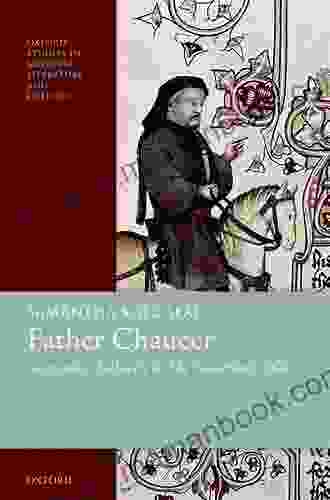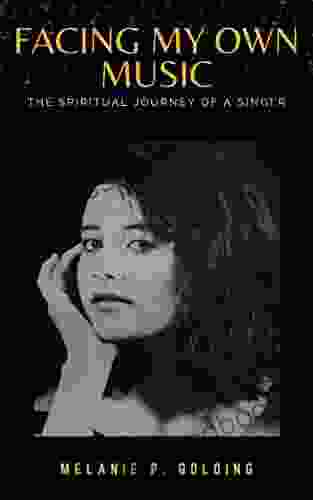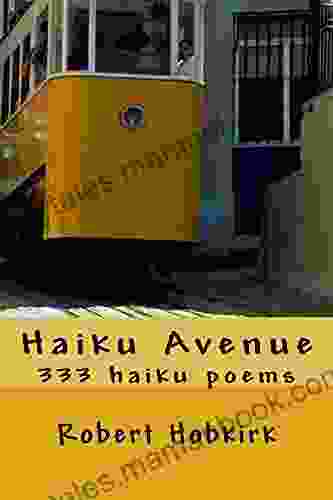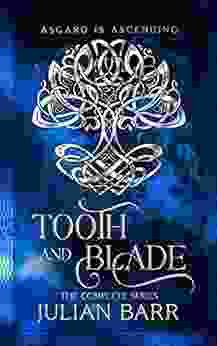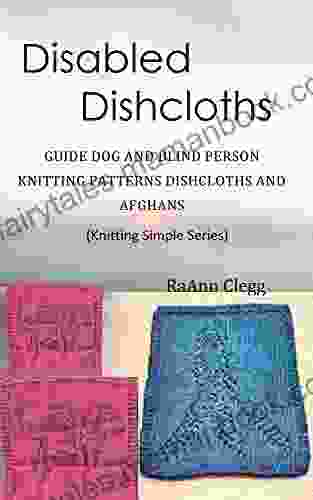Generating Authority in The Canterbury Tales: Oxford Studies in Medieval Literature and Culture

5 out of 5
| Language | : | English |
| File size | : | 1032 KB |
| Text-to-Speech | : | Enabled |
| Screen Reader | : | Supported |
| Enhanced typesetting | : | Enabled |
| Print length | : | 267 pages |
| Lending | : | Enabled |
| Hardcover | : | 126 pages |
| Item Weight | : | 12.6 ounces |
| Dimensions | : | 6.14 x 0.38 x 9.21 inches |
Authority is a central concern in The Canterbury Tales. Chaucer's characters come from all walks of life, and they each have their own unique perspectives on the world. As a result, the Tales offer a rich and complex exploration of the different ways that authority can be generated and contested.
In this article, I will explore the concept of authority in The Canterbury Tales, focusing on how Chaucer uses various narrative techniques to generate authority for different characters. I will draw on insights from medieval literary theory and cultural history to provide a nuanced understanding of the complex and multifaceted nature of authority in the text.
Narrative Techniques for Generating Authority
Chaucer uses a variety of narrative techniques to generate authority for different characters. These techniques include:
- Point of view: The point of view from which a story is told can have a significant impact on the authority of the narrator. For example, a first-person narrator is often seen as more authoritative than a third-person narrator, because the reader is able to experience the events of the story through the narrator's eyes.
- Tone: The tone of a story can also affect the authority of the narrator. A serious and didactic tone can lend an air of authority to the narrator, while a humorous or ironic tone can undermine the narrator's authority.
- Language: The language that a narrator uses can also affect their authority. A narrator who uses complex and sophisticated language is often seen as more authoritative than a narrator who uses simple and colloquial language.
- Structure: The structure of a story can also contribute to the narrator's authority. A well-organized and coherent story is often seen as more authoritative than a disjointed and fragmented story.
Chaucer uses these narrative techniques in a variety of ways to generate authority for different characters. For example, the Knight's Tale is told from the point of view of a first-person narrator who uses a serious and didactic tone. This gives the narrator an air of authority, and the reader is more likely to accept the narrator's account of events as true.
In contrast, the Miller's Tale is told from the point of view of a third-person narrator who uses a humorous and ironic tone. This undermines the narrator's authority, and the reader is less likely to accept the narrator's account of events as true.
The Complex and Multifaceted Nature of Authority
The authority of a character in The Canterbury Tales is not always straightforward. Some characters have more authority than others, and the authority of a character can change over the course of the story. For example, the Pardoner is initially seen as a very authoritative figure. He is a learned man who has traveled widely and has a lot of experience with the world. However, as the story progresses, the Pardoner's authority is undermined. The reader learns that he is a hypocrite who is only interested in making money. This revelation undermines the Pardoner's authority, and the reader is less likely to accept his account of events as true.
The complex and multifaceted nature of authority in The Canterbury Tales reflects the complex and multifaceted nature of authority in medieval society. In the Middle Ages, there was no single source of authority. Instead, authority was distributed among a variety of different institutions and individuals. These institutions and individuals included the Church, the monarchy, the aristocracy, and the guilds. The authority of these institutions and individuals was constantly contested and negotiated.
The Canterbury Tales reflects this complex and multifaceted nature of authority. Chaucer's characters come from all walks of life, and they each have their own unique perspectives on the world. As a result, the Tales offer a rich and complex exploration of the different ways that authority can be generated and contested.
The concept of authority is central to The Canterbury Tales. Chaucer uses a variety of narrative techniques to generate authority for different characters. However, the authority of a character is not always straightforward. Some characters have more authority than others, and the authority of a character can change over the course of the story. This reflects the complex and multifaceted nature of authority in medieval society.
The Canterbury Tales offers a rich and complex exploration of the different ways that authority can be generated and contested. The Tales provide a valuable insight into the complex and multifaceted nature of authority in medieval society.
5 out of 5
| Language | : | English |
| File size | : | 1032 KB |
| Text-to-Speech | : | Enabled |
| Screen Reader | : | Supported |
| Enhanced typesetting | : | Enabled |
| Print length | : | 267 pages |
| Lending | : | Enabled |
| Hardcover | : | 126 pages |
| Item Weight | : | 12.6 ounces |
| Dimensions | : | 6.14 x 0.38 x 9.21 inches |
Do you want to contribute by writing guest posts on this blog?
Please contact us and send us a resume of previous articles that you have written.
 Top Book
Top Book Novel
Novel Fiction
Fiction Nonfiction
Nonfiction Literature
Literature Paperback
Paperback Hardcover
Hardcover E-book
E-book Audiobook
Audiobook Bestseller
Bestseller Classic
Classic Mystery
Mystery Thriller
Thriller Romance
Romance Fantasy
Fantasy Science Fiction
Science Fiction Biography
Biography Memoir
Memoir Autobiography
Autobiography Poetry
Poetry Drama
Drama Historical Fiction
Historical Fiction Self-help
Self-help Young Adult
Young Adult Childrens Books
Childrens Books Graphic Novel
Graphic Novel Anthology
Anthology Series
Series Encyclopedia
Encyclopedia Reference
Reference Guidebook
Guidebook Textbook
Textbook Workbook
Workbook Journal
Journal Diary
Diary Manuscript
Manuscript Folio
Folio Pulp Fiction
Pulp Fiction Short Stories
Short Stories Fairy Tales
Fairy Tales Fables
Fables Mythology
Mythology Philosophy
Philosophy Religion
Religion Spirituality
Spirituality Essays
Essays Critique
Critique Commentary
Commentary Glossary
Glossary Bibliography
Bibliography Index
Index Table of Contents
Table of Contents Preface
Preface Introduction
Introduction Foreword
Foreword Afterword
Afterword Appendices
Appendices Annotations
Annotations Footnotes
Footnotes Epilogue
Epilogue Prologue
Prologue Eliza Frances Andrews
Eliza Frances Andrews Eric Sellin
Eric Sellin Val Bianco
Val Bianco Honey Jaks
Honey Jaks Joanna Gaines
Joanna Gaines Ted Andrews
Ted Andrews Six Inches
Six Inches Thomas Henry Huxley
Thomas Henry Huxley Jodi Ann Fahey
Jodi Ann Fahey Ansh Vasani
Ansh Vasani David Niall Wilson
David Niall Wilson Win Scott Eckert
Win Scott Eckert Jane Dailey
Jane Dailey Dan Fargo
Dan Fargo Christopher Paolini
Christopher Paolini Joyce Lee
Joyce Lee Michael Shaw
Michael Shaw Mark J Kohler
Mark J Kohler Shalane Flanagan
Shalane Flanagan Thea Harrison
Thea Harrison
Light bulbAdvertise smarter! Our strategic ad space ensures maximum exposure. Reserve your spot today!
 Chris ColemanFollow ·5.2k
Chris ColemanFollow ·5.2k Fabian MitchellFollow ·14.2k
Fabian MitchellFollow ·14.2k Edison MitchellFollow ·4.6k
Edison MitchellFollow ·4.6k Enrique BlairFollow ·17.5k
Enrique BlairFollow ·17.5k Christian CarterFollow ·5.7k
Christian CarterFollow ·5.7k Anton FosterFollow ·13.9k
Anton FosterFollow ·13.9k Eric NelsonFollow ·7.3k
Eric NelsonFollow ·7.3k Logan CoxFollow ·11.1k
Logan CoxFollow ·11.1k
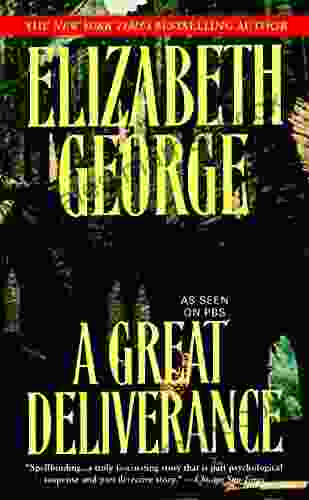
 Edwin Cox
Edwin CoxThe Great Deliverance Inspector Lynley: A Literary...
: In the realm of detective fiction,...

 Christian Carter
Christian CarterMetal Gear Solid Ground Zeroes Guide, Walkthrough, Tips,...
Metal Gear Solid...

 Branden Simmons
Branden SimmonsYellow Green: Not an Autobiography of Marcy Chen
Yellow Green:...

 Edward Reed
Edward ReedPurple Orchids: An Artistic Tale of Two Sisters in the...
Prologue: A Legacy Unveiled In the...

 Earl Williams
Earl WilliamsThe Evolving Housing Market Dynamics in Africa:...
The African housing market is a...

 William Faulkner
William FaulknerVoices In My Head: A Cerebral Symphony of Terror
In the labyrinthine...
5 out of 5
| Language | : | English |
| File size | : | 1032 KB |
| Text-to-Speech | : | Enabled |
| Screen Reader | : | Supported |
| Enhanced typesetting | : | Enabled |
| Print length | : | 267 pages |
| Lending | : | Enabled |
| Hardcover | : | 126 pages |
| Item Weight | : | 12.6 ounces |
| Dimensions | : | 6.14 x 0.38 x 9.21 inches |


